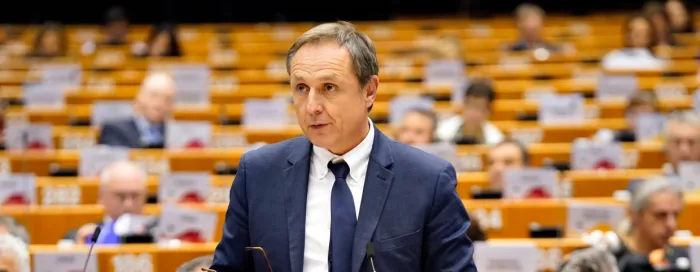At the beginning of February, European Commission president Ursula von der Leyen announced a Conference on the Future of Europe. The aim was to start a comprehensive consultation of European citizens on May 9, Europe-day, in order to propose improvements to the functioning of the Union and to set new priorities for it.
A couple of weeks and one pandemic later this project for improving the institutional and functional framework of Europe feels like ancient history.
A discussion on the future of Europe is nevertheless of key importance. The initial European management of the COVID-19 crisis has not been a mark of honour for the Union - not so much because of the EU institutions, but because national or even nationalist reflexes seem to dominate the European response.
Member states which reacted without any consideration for the systemic risks for the whole of Europe, scrambling to take decisions for „their“ citizens. The very concept of Union citizenship, based on an area of freedom, security and justice and on common legal foundations, has effectively been put on ice
The lack of coordination between states was counter-productive. On the other hand, initiatives of locale authorities such as the reception of COVID-19 patients from the Alsace region and Lombardy in six different German Länder, have shown that the reflex of European solidarity may bee more deeply rooted in the regions than at national level.
Moreover, it has to be recognised that the EU cannot act if the member states do not allow it to do so. Indeed, in the current division of competencies within the EU which is fixed in the Treaties, health is reserved for the member states. Consequently the actions oft he EU institutions could not focus directly on health policy as such. Yet in other policy areas, the European Commission has suspended the stability pact and competition rules, and has already made structural funds to the tune of 37 billion Euro available to address the crisis, while the European Central bank has launched an emergency buy-back programme for 750 billion Euro.
In the past, the EU and its member states have managed to deepen European integration in response to every crisis. The Corona-crisis should not be an exception to this rule.
We need an open debate about how the lack of solidarity between member states can be avoided in similar situations in the future.
We have to discuss the possibilities to strengthen democratic decision-making in Europe in emergency situations, and this does include the possible need to reform the EU Treaties.
We also have to reflect on all levels of governance in the EU. Every re-nationalisation of policies is also a re-centralisation which deprives regional and local authorities of European room for manoeuvre. On the contrary, any reform oft he EU Treaties should strengthen the role of territorial authorities, for instance by giving the European Committee oft he Regions a decisive role in issues of regional policy, solidarity, health and the Green Deal initiative.
In a time when the EU is not just undergoing a „stress test“, but an existential „crash test“, we do need a transparent and participatory Conference on the Future of Europe! Launching this conference on May 9 2020 would be, seventy years after the Declaration by French Foreign Minister Robert Schuman, indeed the best acknowledgement of his call for „creative efforts for a Europe that is built on practical solidarity“.
Christophe Rouillon, Mayor of Coulaines (Sarthe), President of the PES Group in the European Committee of the Regions, Vice-president of the association of French Mayors
This article was originally published by Ouest-France. Please click here to read the original text in French.
